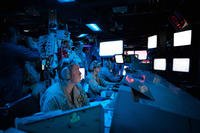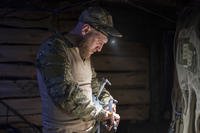
Few people would dispute the significant role the Internet plays in political affairs but the recent election in Iran took this role to a new level. Prior to the election, the Iranian authorities blocked access to the social networking web sites. Supporters of the opposition party used social networking sites to recruit hackers and coordinate highly targeted attacks focusing on key web sites of President Ahmadinejad.
Top Social Networking Sites:
* Twitter
* MySpace
* Facebook
* BeDo
* Friendster
* Hi5
* LinkedIn (groups)
* Ning
* Classmates
* Reunion
Before
Candidates and their supporters opposing President Ahmadinejad had been using the social networking sites to spread information as part of their election campaigns and organized events.
During
In the heated battle for the presidency, the social networking sites were used to coordinate analysis, and report abnormal events that were said to be taking place and to rally all those who were supporting a regime change in Iran. In fact there was even a "Cyberwar guide for Iran elections" posted for download by would-be hacktivists.
After
Shortly after the election results were announced, political hacktivists launched a series of cyber attacks targeting high value web site of the Ahmadinejad regime. The Iranian opposition supporters coordinated a series of cyber attacks that successfully managed to prevent access to many pro-Ahmadinejad Iranian web sites, plus the President's site and other government sites. The DDoS attacks were successful and sites were brought down by traffic from an estimated 500,000 computers. Twitter and Facebook are thought to be the primary sources where computer users could download the software necessary to join the ranks of the political hacktivists.
President Ahmadinejad took decisive steps and basically turned off the Internet in Iran for about an entire day. His action, blocked access to information being distributed by the opposition party and the coordination of the cyber revolt activities. The social outrange was collected, focused and targeted into a political weapon and the enabling technology was the Internet. Many find it hard to believe a 500,000 node DDoS attack army could be assembled that fast without prior planning. Some have speculated that outsiders may have had a hand in the rapid assembly of the cyber capabilities used in the post election cyber attacks. Given the massive distributed sources of attack, it is hard to believe this could have been pulled together in a few short hours.
The role of the Internet in politics has increased and the events in the Iranian election are the latest example of the power and influence the Internet can and will have to impact and influence political campaigns and elections. A few have termed these actions -- citizen-based political warfare. The opposition party turned their collective power of influence into a political weapon through the use of social networking sites. The events that took place in Iran represent a harbinger of what is sure to come. There is no doubt the implications social networking sites will have on politics from now on.








